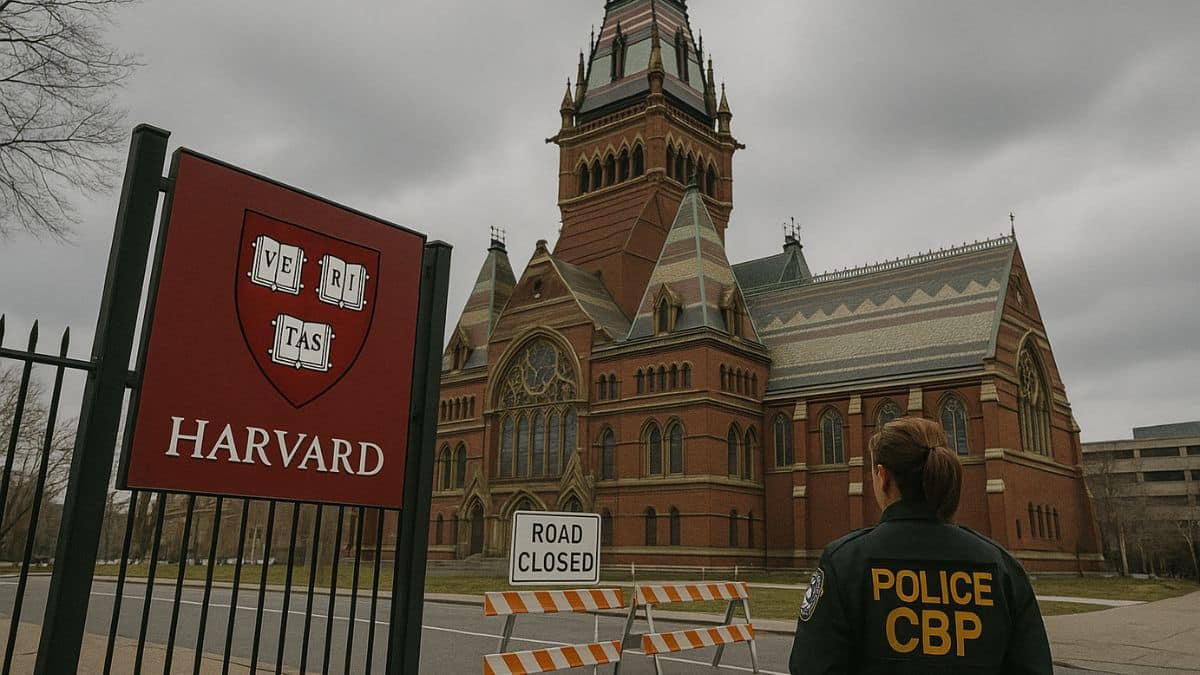The recent decision by the U.S. Department of Homeland Security to revoke Harvard University’s certification for hosting international students has created unprecedented turmoil in academic circles. This stunning development comes after allegations of deep connections between the prestigious institution and the Chinese Communist Party (CCP). The revocation of Harvard’s Student and Exchange Visitor Information System (SEVIS) certification threatens the status of thousands of international students and raises profound questions about the intersection of national security concerns and academic freedom in America’s higher education system.
Harvard’s alleged ties to China under federal scrutiny
Federal officials have accused Harvard of cultivating concerning relationships with Chinese entities, including claims that the university has been involved in training members of a CCP paramilitary group. These explosive allegations of foreign influence form the centerpiece of the government’s justification for revoking Harvard’s ability to host international students.
Congressional representatives have intensified their investigation into Harvard’s Chinese partnerships, particularly focusing on collaborations with organizations allegedly involved in human rights violations. The timing of this action is noteworthy, occurring amid heightened tensions between the United States and China across multiple fronts.
Harvard administrators have vehemently denied these accusations, issuing a strongly worded statement condemning the government’s actions as unlawful and unjustified. The university emphasizes its long history of hosting international scholars from over 140 countries, arguing that this global engagement strengthens both the institution and America’s position in the world of higher education.
The government has demanded Harvard provide comprehensive records of “illegal, dangerous, and protest activity” by international students spanning the past five years. This extraordinary request came with an extremely tight 72-hour deadline, putting tremendous pressure on university officials.
In China, a mountain range disappears under a sea of solar panels – creating the largest photovoltaic landscape ever deployed in the world
At 11 years old, she discovers a giant marine reptile that had been sleeping beneath our feet for 200 million years
Campus safety concerns and political context
Beyond allegations of Chinese influence, Homeland Security officials cite concerns about campus safety as justification for their action. The government claims Harvard has permitted an “unsafe campus environment” where “anti-American, pro-terrorist agitators” have allegedly threatened other students. Jewish students have reportedly faced particular targeting, according to the government’s assessment.
The following factors have contributed to the government’s decision:
- Reports of foreign students participating in disruptive protests
- Alleged harassment of specific student groups
- Concerns about inadequate university response to security threats
- Suspicions of coordinated activities with foreign entities
Critics argue this action represents part of a broader political campaign against elite private universities accused of promoting “radical left” ideologies. The SEVIS certification cancellation occurred shortly after a shooting incident in Washington, D.C. that resulted in the deaths of two Israeli embassy employees, potentially influencing the timing of this decision.
They dumped 200,000 radioactive barrels into the Atlantic: French researchers launch an unprecedented mission to track them down
Goodbye smartphones: Mark Zuckerberg announces the end date — and what will replace them
Devastating impact on international education
With international students comprising over 25% of Harvard’s student body, this decision strikes at the core of the university’s identity as a global academic leader. The immediate consequences for affected students are severe, with many facing potential loss of legal immigration status.
| Impact Area | Consequences |
|---|---|
| Current Students | Visa revocations, SEVIS record cancellations, potential deportation |
| Future Applicants | Uncertainty about studying in the U.S., reconsideration of educational plans |
| University Operations | Administrative chaos, compliance challenges, reputation damage |
| U.S. Higher Education | Potential precedent affecting other institutions, diminished global standing |
Many international students report hesitancy to speak on controversial issues for fear of deportation, creating a chilling effect on academic discourse and campus expression. The uncertainty has generated anxiety throughout Harvard’s international community as students await resolution of this unprecedented situation.
Beyond Harvard’s campus, this action raises fundamental questions about the future landscape of international education in America. Other institutions are closely monitoring developments, concerned that similar measures could affect their own international programs. The potential precedent established by this case could reshape how universities navigate the complex interplay between national security concerns and their global educational missions.
As this situation unfolds, the academic world watches closely to see how Harvard and federal officials will resolve their standoff, and what lasting impact this controversy will have on America’s position in global higher education.







